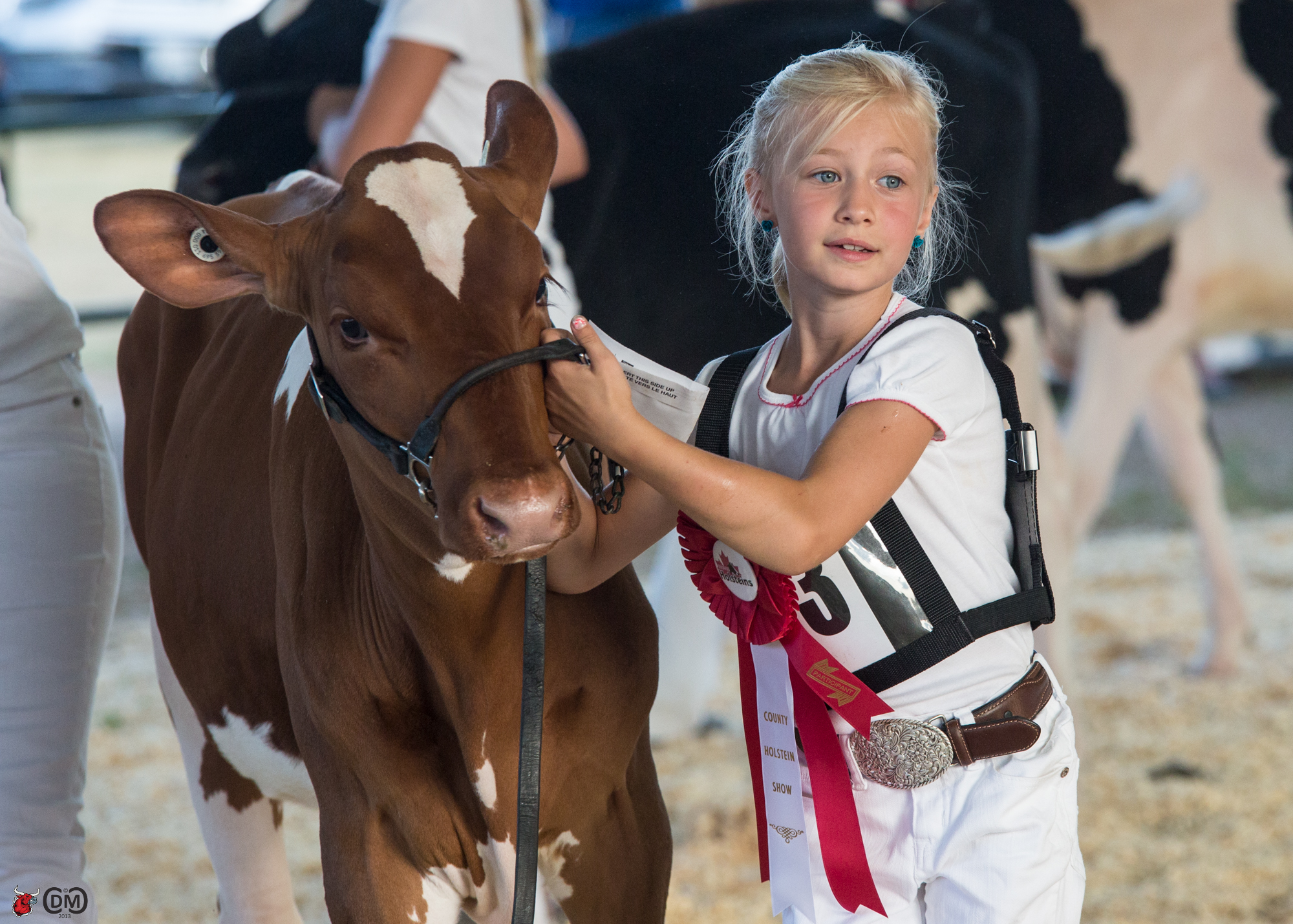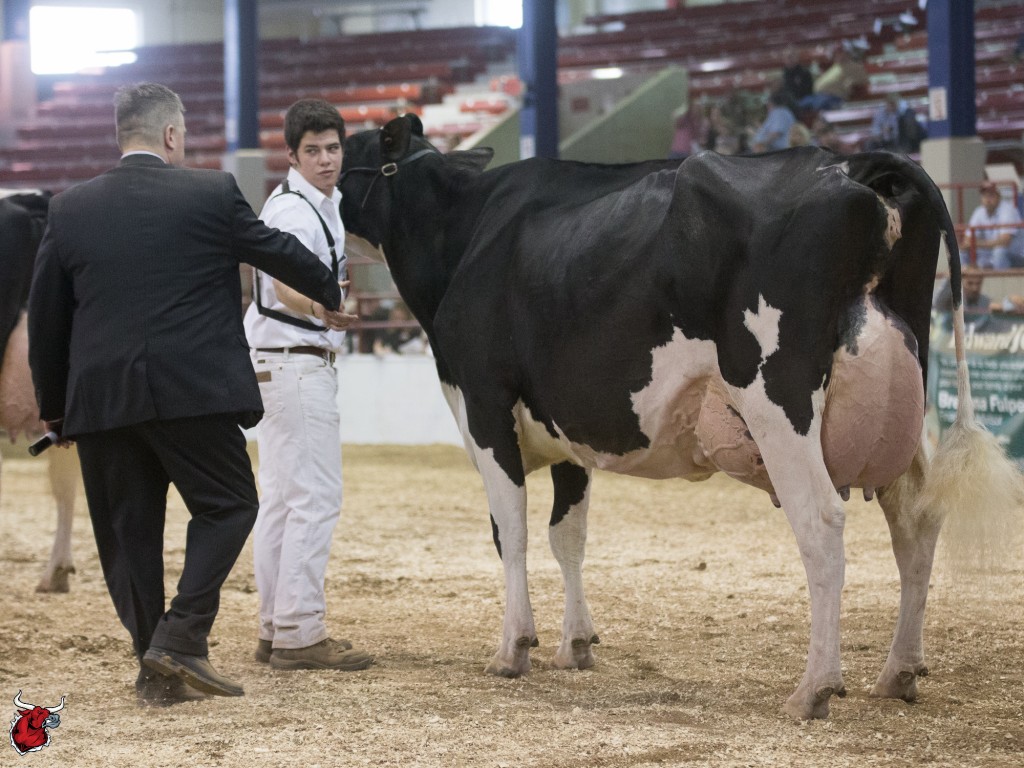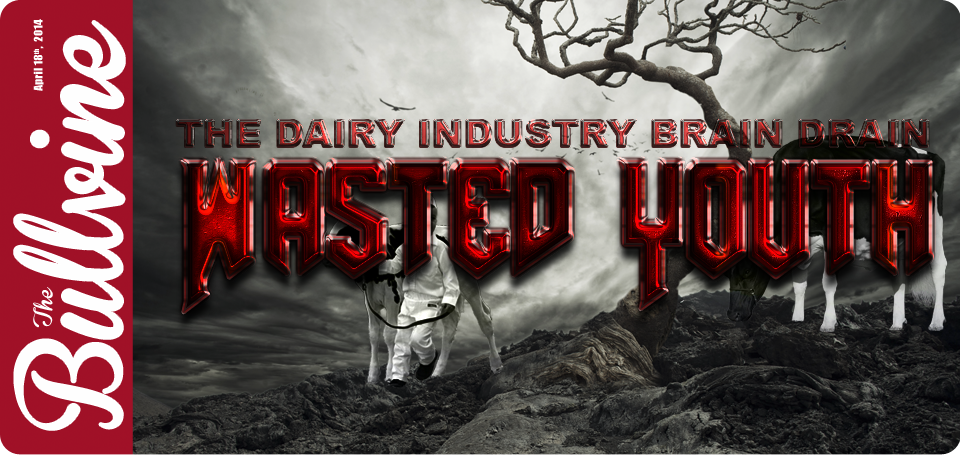Dairy farming represents a true School of Life for young people. It teaches them the skills and values they need to be successful and to become leaders in their communities. Unfortunately, the challenge is that it does such a good job that these same young people are leaving the industry for more lucrative careers.

For many the passion for dairy cattle and showing dairy cattle starts at a very young age.
Dairy farming, along with judging and showing dairy cattle, provides young people with opportunities to develop personal values and skills in communication, team building and competition. It helps develop the confidence to be heard, the ability to make tough decisions and the skills to take and defend a position. Each of these is pivotal to success in any career. Other industries are taking note of these essential skills that are being developed in today’s top dairy youth and they are aggressively recruiting them. (Read more: For Love of the Ring! and How Dairy Cattle Judging Made Me Rich)
Why are they leaving?
It could be the cost of entry is too high or maybe it’s that the lifestyle does not suit. Whatever the reason, more and more highly skilled young people are heading elsewhere to apply their talents. As the average dairy farm has had to grow in numbers, it has also meant a huge rise in the cost to start or take over such an operation.
The typical new dairy operation is no longer the 30-40 head milking herd. Today`s startup is a 200+ plus dairy operation, where the name of the game is operating efficiently and profitability. This is a much-needed change. (Read more: Where have all the dairy farmers gone? In Depth Analysis of the 2013 U.S. and Canadian National Dairy Herd Statistics). Having said that, it is not so easy for many operations to go from a lifestyle choice to a company. It also has a huge impact on the next generation, who are considering entering into dairy farming and taking on the necessary debt.
As the world has gone through a credit crisis, getting financing to start your dairy operation has become harder and harder. For many talented and hardworking youth, their paths have been drawn to other industries, where they can apply their efforts with more financial reward and less risk. (Read more: Is Dairy Farming Dying?)
Career Cast listed dairy farming as the #6 worst jobs in 2013. But hey, that’s a good sign. It was #2 in 2012. I am sure the people rating these jobs have never even been on a dairy farm. But the point is clear. Young people are not banging at the doors trying to get into the dairy industry. Not surprisingly dairy farming has one of the highest average ages of all industries and is getting older. Long hours and low pay does not retain top talent.
What are we doing to stop this?
When I look at the breed associations and other industry organizations, I look at their core initiatives. I see a glaring problem. Retention. The industry is getting smaller, not from a milk production standpoint, but for sure from a talent retention standpoint. Even worse is the fact that no one really wants to acknowledge and address this issue.
Sure I see these organizations saying that we are “connecting” with youth, through social media and other platforms, but what are they really doing to ensure that these talented young people stay in the industry?
What can we do to stop this?
It takes more than just being cool, or fun, or being friendly. It takes educating them about the business of dairy farming. It takes getting them involved in the ownership side of the business. A program that does do this is the US National Youth Shows. Unlike the 4-H program that is heavily focused on youth development, which is great, the National Youth Show program gets these individuals involved in the ownership of the cattle they are exhibiting. This sound like a minor difference, but it is huge. It is something that the Canadian Dairy Industry seems to ignore as they have yet to even implement a program at all similar to this. When these young people own the animals they are exhibiting they take on a whole new level of pride and responsibility. More importantly they are building up an equity stake in the industry. Their ownership of cattle gives them the base to build their herd from. Sure, for many years, that herd will be part of their parents operations, but when they are ready to make that big step into owning their own dairy, they not only have the animals to do so, they have the equity to show the bank.

At the recent New York International Spring Show, Andy Reynolds exhibited the Grand, Reserve Grand and Reserve Champion including Grand Champion of Junior Show – Co-Vale Zenith Darla
We also need to further educate young people. On the one hand, we spend loads of time and effort to educate them about how to better themselves and become contributing members of their community. But, on the other hand, what are we doing to educate them about the business of dairy farming? Balancing the books, managing expenditures, controlling costs and generating revenue are necessary skills. These are lessons than many producers themselves had to learn through the school of hard knocks, but we are doing nothing to help instill them in the next generation. We need to have more programs to help educate our young people about how to be better business managers. Heck, if you think about it, many of our current producers could also benefit from upgrading in these areas. .
The Bullvine Bottom Line
As someone who was has always felt passionately about agriculture, the family farm legacy and Holsteins in particular have been through this myself. Growing up with full family participation in 4-H, I have raised, shown, bought and sold many elite dairy cattle. After a successful 4-H career, I too was being called away from the dairy industry and into other opportunities. The work ethic, focus and ability to manage business responsibilities that I learned on the farm have helped me to successfully navigate the Fortune 500 world. I have now come back to my first love with a new perspective on some of the glaring issues that are facing the dairy industry today. When it comes to retaining our youth, we are falling far short. We are not getting them involved on the business side of our industry. These are bright, 21st Century people who seek careers that will develop their full potential. Currently all dairy programs are more geared around the community, the lifestyle and traditional parameters. All of these are great, but without dairying providing a sustainable, growing business there is no profitable industry to be part of. If we allow this drain to continue, we are failing to develop our own best resource … our next generation.
Get original “Bullvine” content sent straight to your email inbox for free.



















Leave a Reply
You must be logged in to post a comment.